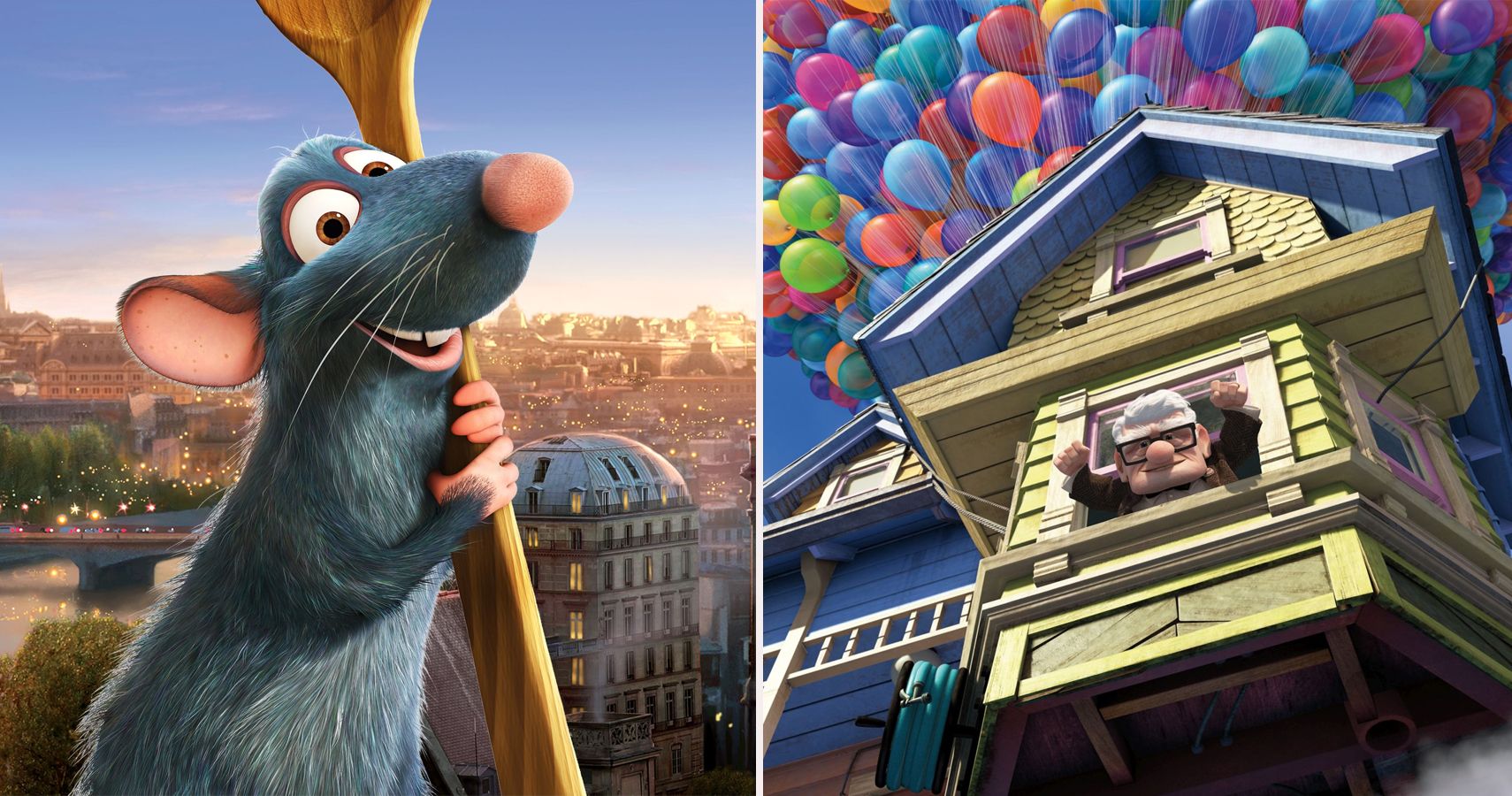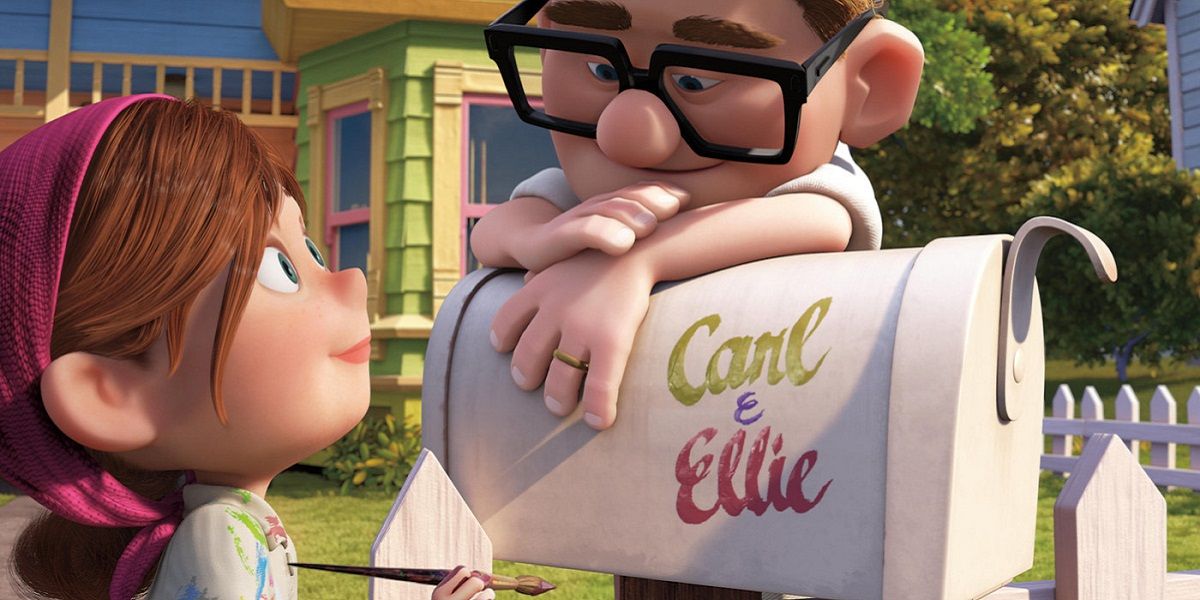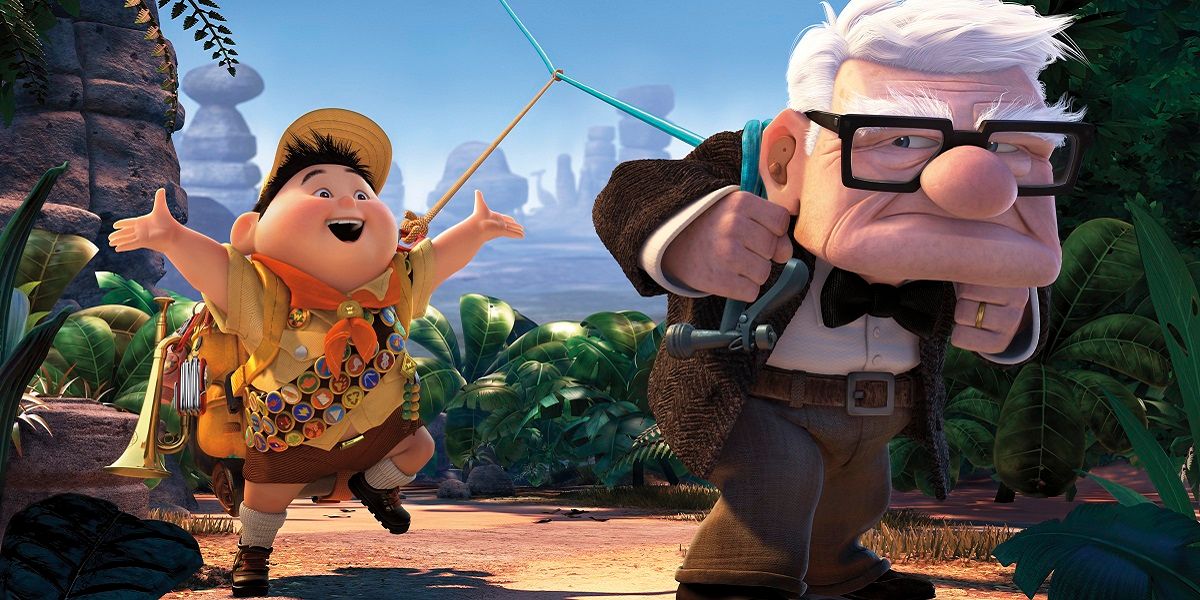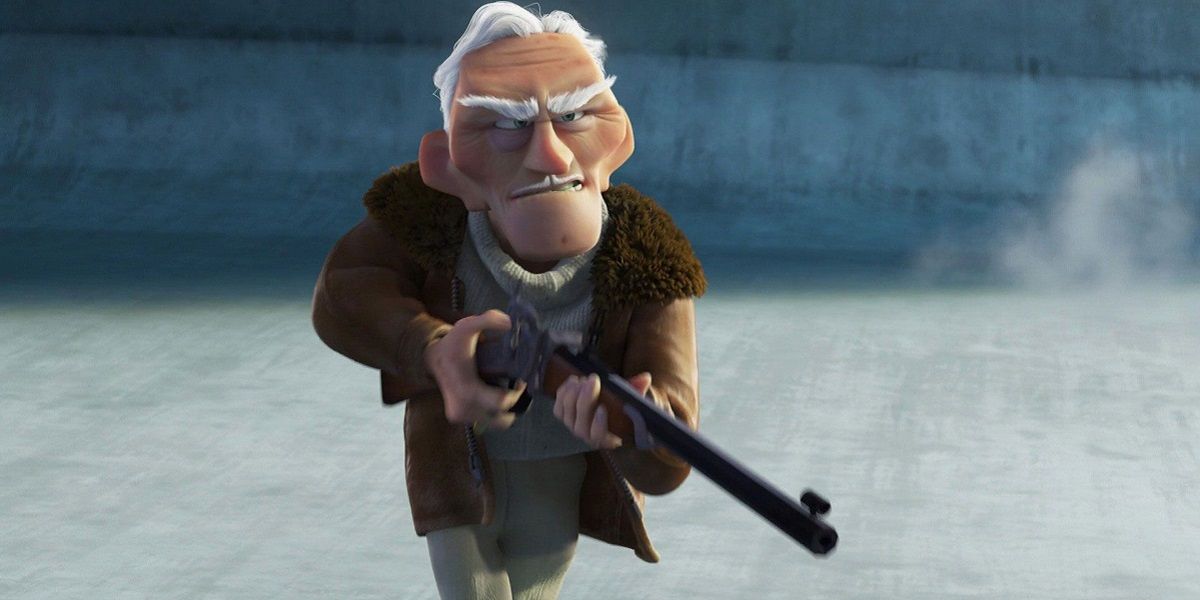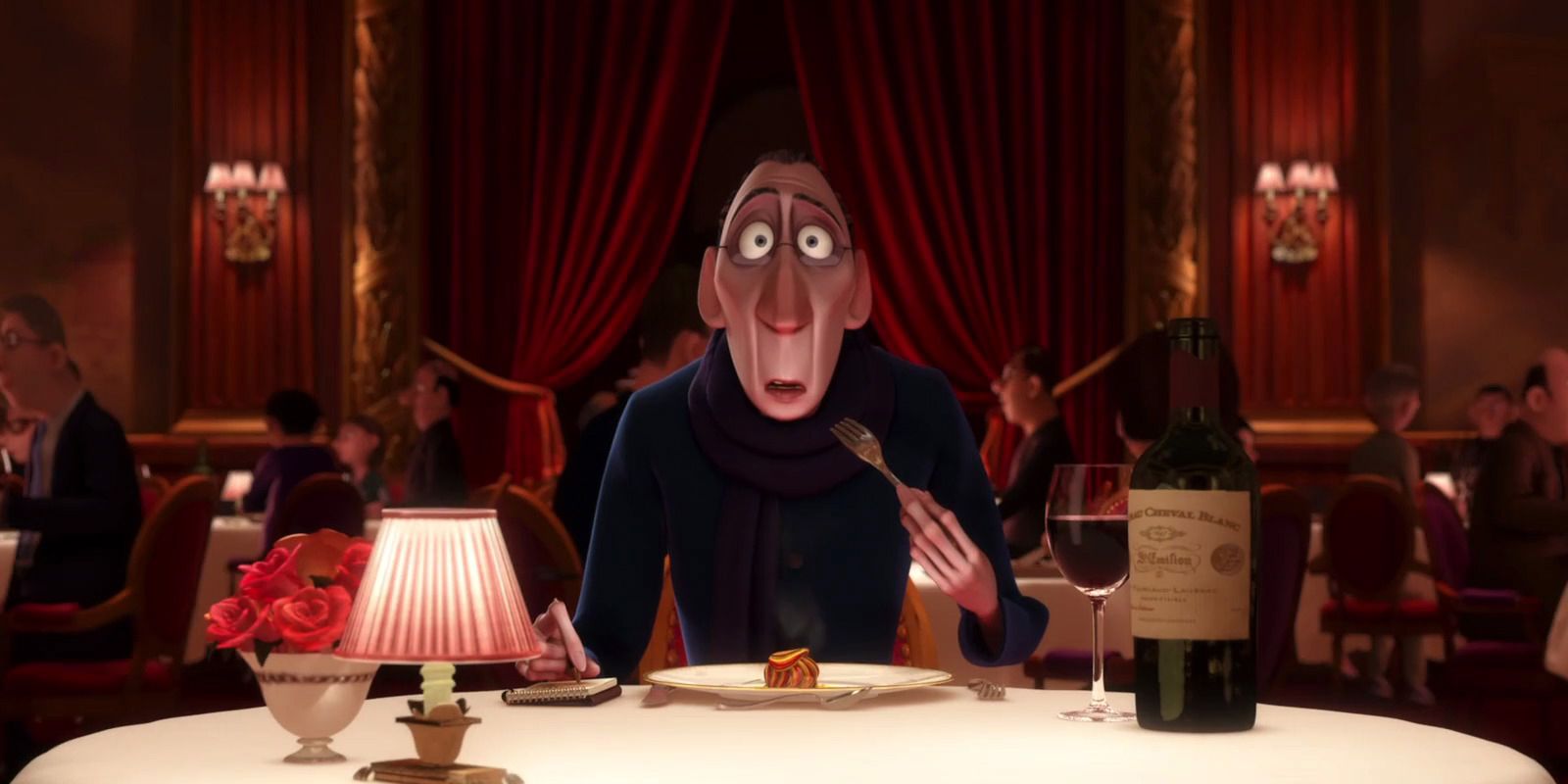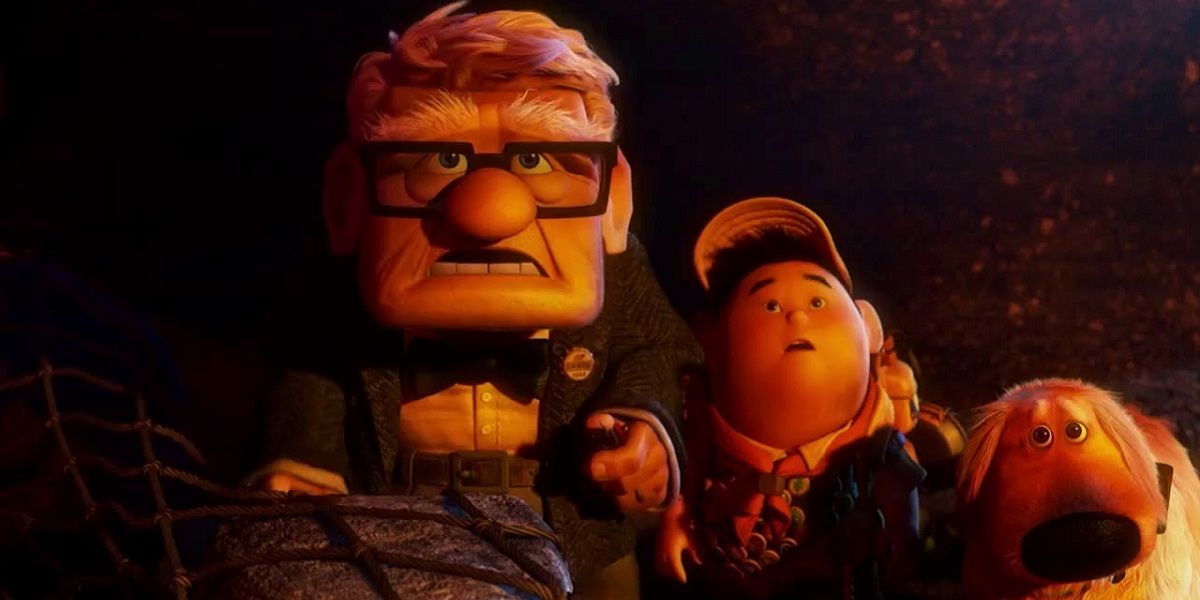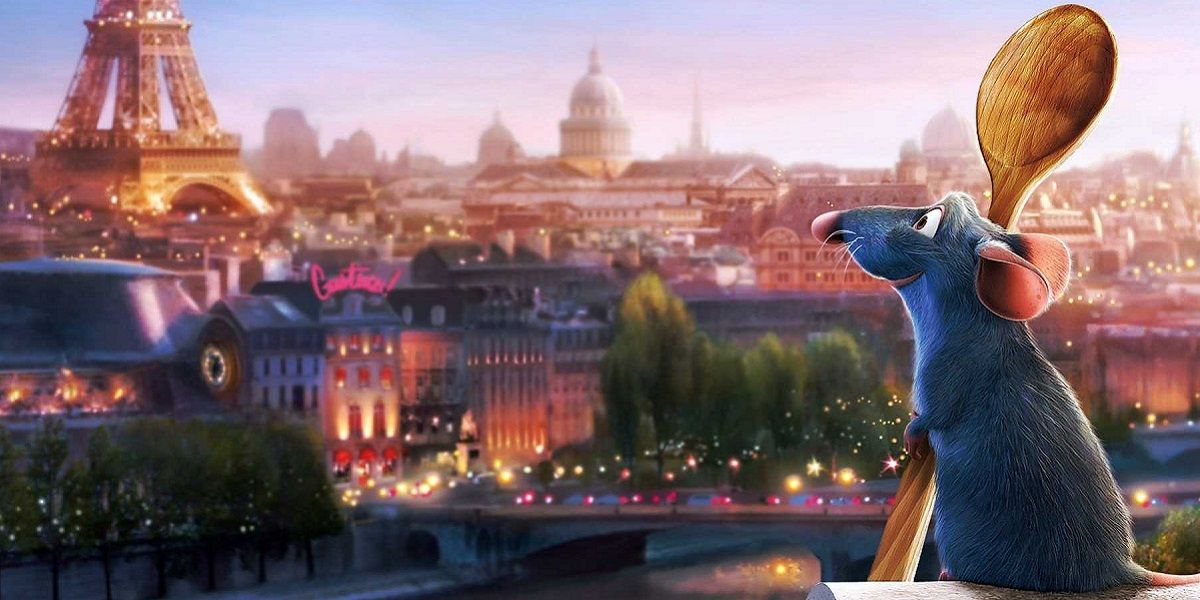While Pixar has been a bit lackluster in recent years with some (not all) of its releases, there have been incredible films in the mix, hence the high standards for modern Pixar to be better. Of all of the films in Pixar's roster, two of the most-talked-about to this day are Up and Ratatouille.
Rather than focus on films that built up through franchise (like Toy Story), this list will talk about the two best standalone Pixar classics that have transcended the title of "child-friendly movie for all" and are artistic masterpieces. Debating their animation is pretty pointless, as both are nearly flawless in design, and both have incredible scores by Michael Giacchino, so that won't be counted, either.
Up: The Opening Scene
The opening scene in Up is both the movie's heart and soul and a bit of a problem. The scene is perfect, and is an incredible narrative sequence, setting up the film in just 10 minutes. The film could have ended right after that scene, and audiences would feel their movie tickets were justified.
That being said, it does sort of peak (to an extent), and the movie doesn't quite hit that high again. That being said, there's nothing to complain about, because the opening and subsequent montage is one of the most iconic and heartbreaking scenes in Pixar history, and arguably even the best.
Ratatouille: It Speaks To Artists And Critics
Ratatouille was written and directed by Brad Bird, who had gradually climbed up the ladder of success over the years and achieved success and endured failure time and time again. So when Ratatouille speaks to the artsy audience, it doesn't feel like pandering or pretentiousness, it feels like it comes from a genuine point of view.
Anyone who wants to make art, talk about art, or just be involved in it will appreciate Ratatouille all the more because it empathizes with its own audience immensely.
Up: The Small Cast Is Perfect
Up has a small cast of characters; Carl, Russell, Charles Muntz, Dug, Ellie, and Kevin. And Kevin barely counts, because she's a non-speaking bird who serves more as a central plot point, though she has plenty of personality. Ellie is only in the opening, but her presence is felt throughout the film.
Carl and Russell are each quasi-stereotypical "old" and "young" characters in many ways, but they're done with so much originality and their friendship's gradual growth is a highlight of the film. Muntz also appears early on, but his turn to the villain is believable and devastating for Carl. And yes, Dug is pretty much spot on what a dog would probably talk like if it had the ability, and he's an adorable good boy.
Ratatouille: It's Even Better For Adults
Brad Bird tends to aim his "kid" films a few tiers higher than the usual level of child-friendly cinema. For instance, The Incredibles is pretty straightforward that the enemy soldiers will kill the children, and The Iron Giant doesn't hold back on the possibility of nuclear annihilation.
So it's only natural that Ratatouille would treat its audience, children and adults alike, in a straightforward manner. It's hard to explain, but if Brad Bird's approach to filmmaking was brought to life, it would act like Atticus Finch does when he talks to his children.
Up: It's Funnier
Up is as hilarious in every possible way. There are so many jokes being thrown at once that if one doesn't work, another will compensate. But frankly, there aren't really any bad jokes in Up. Even the tamer ones deserve a small smirk or exhale of air.
There are physical jokes, visual gags, misunderstandings, running gags, one-liners, and virtually any kind of joke possible; occasionally, there's even some dark humor.
Ratatouille: The Climatic Third Act Is Better
Up's third story act is fine; it consists of a literal dogfight with Muntz' dogs fighting in the air, Carl and Russell trying to get the house away from the airship, and all in all, it's pretty decent. However, Ratatouille's is better, despite the smaller scale and stakes.
No one will die if Anton Ego gives the restaurant a bad review, but there is such an aura of epic proportions that it's impossible not to get invested. Remy has to prove himself and make things right, and wanting to see him achieve his dreams at that moment is incredibly stress-inducing. But the payoff is so satisfying; the moment Ego drops his pen is another one of the best moments in Pixar.
Up: The Antagonist Hits Close To Home
Charles Muntz was essentially the entire spark that started Carl's dreams and affected his life drastically. After worshipping the explorer and wanting to be like him, a young Carl ran into his future wife, Ellie, while he ran around pretending to be the next Muntz. Ellie also chased adventure like Carl, and that love of it would bring them together. The mutual decision to go to Paradise Falls, their bucket list goal as a couple, was also inspired by Muntz's disappearance there on his final expedition.
When Muntz is revealed to have essentially gone mad and killed off his competition, Carl has to contend with the fact that his massively influential hero has snapped and wants to kill him. It's a tragic fall from grace from a former hero who just wanted to be taken seriously after being blown off despite making amazing discoveries.
Ratatouille: The Antagonist Has An Arc
Ratatouille has a few antagonists, but the main one, Anton Ego, is an essential piece to the film, and his arc plays into the theme and idea of the film as a whole. Anton is designed to look like the epitome of people's perceptions of a critic: imposingly tall, dressed in black, scowling, and almost Nosferatu like, as if he's a vampire or ghoul, a creature that sucks the life out of artists and enjoys it to sustain himself. His office even resembles the shape of a coffin.
When Remy serves him the titular dish in the climactic scene in the film, Ego snaps out of his bitter and semi-sadistic phase and drops his preconceptions and snobbery, realizing the beauty in simplicity and in his own words, is "rocked to his core," and delivers the message of the film in a perfect monologue.
Up: The Dramatic Scenes Hit Harder
There's a scene when Linguini discovers that Remy has been stealing from the kitchen, and the two have a falling out. Later, Linguini is abandoned by his entire staff on the night Ego comes when he reveals the Remy secret. And while the scenes and the film's other scenes that are similar to them are good, they pale to the heartbreaking moments in Up (beyond the opening scene).
In Up, there is a painful hard choice that Carl has to make, regarding saving Kevin or the house he and Ellie lived their entire lives in, which he promised he would get to Paradise Falls. In a tragic moment, Carl makes the wrong choice, and he rightfully incurs the anger of Russell, and the disappointment in himself is utterly depressing to witness. Likewise, the scene at the end of the film when Carl passes on Ellie's badge to Russell at the Wilderness Explorer ceremony, which Russell's father didn't bother to show up for, is a beautiful tearjerker.
Ratatouille: The Message
Anton's perfect monologue summarizes everything that makes Ratatouille so special. It's not just Pixar's finest message; it's one of cinema's best messages. It's a little bit of everything that makes Ratatouille work so perfectly. The adult tone, the appeal to artists, the third act, and Ego's arc all lead to this moment. Ego writes a review of his experience eating Remy's food, and in it, speaks to the disenfranchised people, the downtrodden, and struggling artists.
He realizes that the idea that "anyone can cook" isn't saying that any person can be a great artist, but that a great artist can come from anywhere. It's a great message that needs to be spread and heard more often in the world, and it's it doesn't have to just apply to art.

